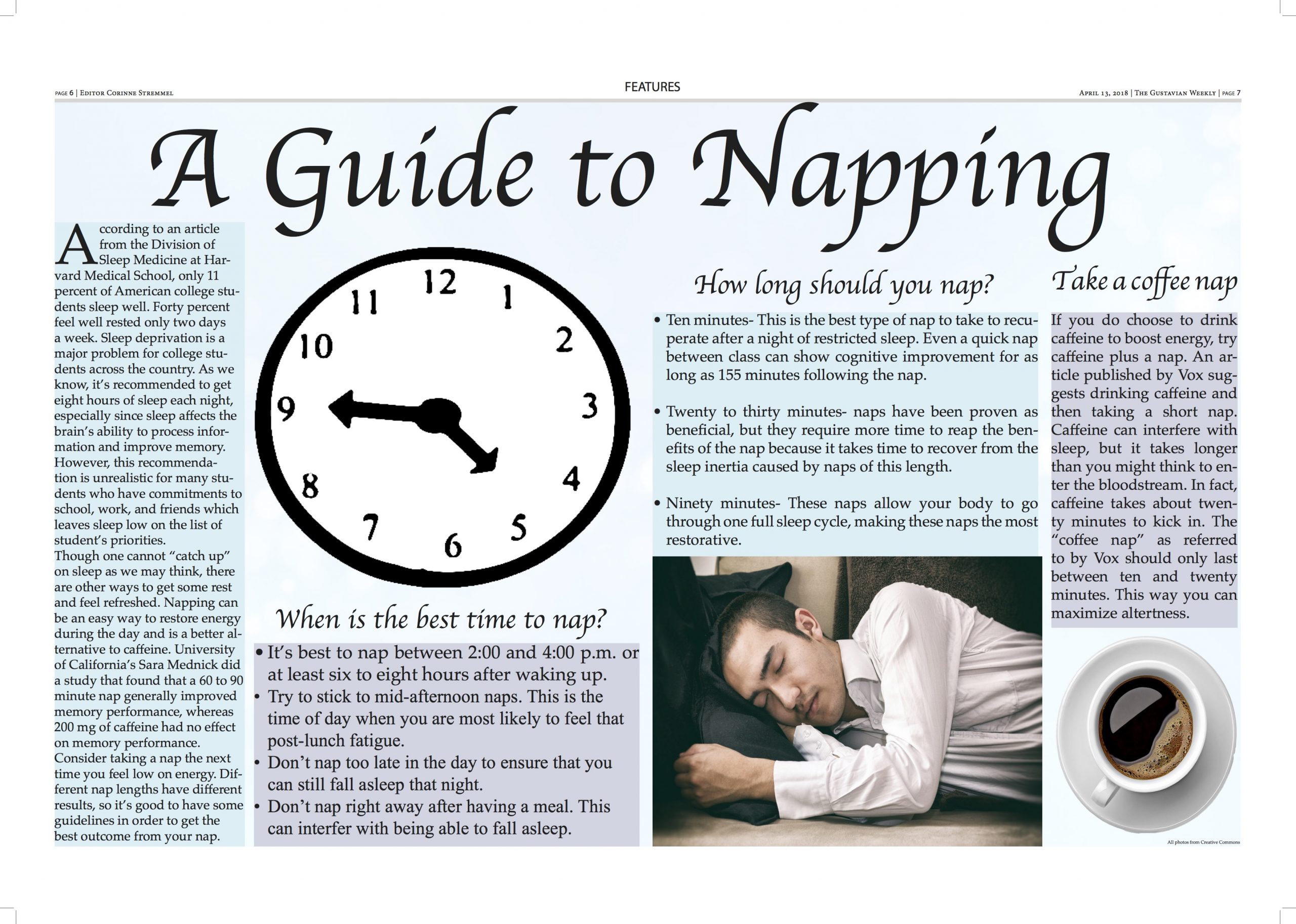According to an article from the Division of Sleep Medicine at Harvard Medical School, only 11 percent of American college students sleep well. Forty percent feel well rested only two days a week. Sleep deprivation is a major problem for college students across the country. As we know, it’s recommended to get eight hours of sleep each night, especially since sleep affects the brain’s ability to process information and improve memory. However, this recommendation is unrealistic for many students who have commitments to school, work, and friends which leaves sleep low on the list of student’s priorities.
Though one cannot “catch up” on sleep as we may think, there are other ways to get some rest and feel refreshed. Napping can be an easy way to restore energy during the day and is a better alternative to caffeine. University of California’s Sara Mednick did a study that found that a 60 to 90 minute nap generally improved memory performance, whereas 200 mg of caffeine had no effect on memory performance.
Consider taking a nap the next time you feel low on energy. Different nap lengths have different results, so it’s good to have some guidelines in order to get the best outcome from your nap.
When is the best time to nap?
- It’s best to nap between 2:00 and 4:00 p.m. or at least six to eight hours after waking up.
- Try to stick to mid-afternoon naps. This is the time of day when you are most likely to feel that post-lunch fatigue.
- Don’t nap too late in the day to ensure that you can still fall asleep that night.
- Don’t nap right away after having a meal. This can interfere with being able to fall asleep.
How long should you nap?
- Ten minutes- This is the best type of nap to take to recuperate after a night of restricted sleep. Even a quick nap between class can show cognitive improvement for as long as 155 minutes following the nap.
- Twenty to thirty minutes- naps have been proven as beneficial, but they require more time to reap the benefits of the nap because it takes time to recover from the sleep inertia caused by naps of this length.
- Ninety minutes- These naps allow your body to go through one full sleep cycle, making these naps the most restorative.
Take a coffee nap
If you do choose to drink caffeine to boost energy, try caffeine plus a nap. An article published by Vox suggests drinking caffeine and then taking a short nap. Caffeine can interfere with sleep, but it takes longer than you might think to enter the bloodstream. In fact, caffeine takes about twenty minutes to kick in. The “coffee nap” as referred to by Vox should only last between ten and twenty minutes. This way you can maximize alertness.
